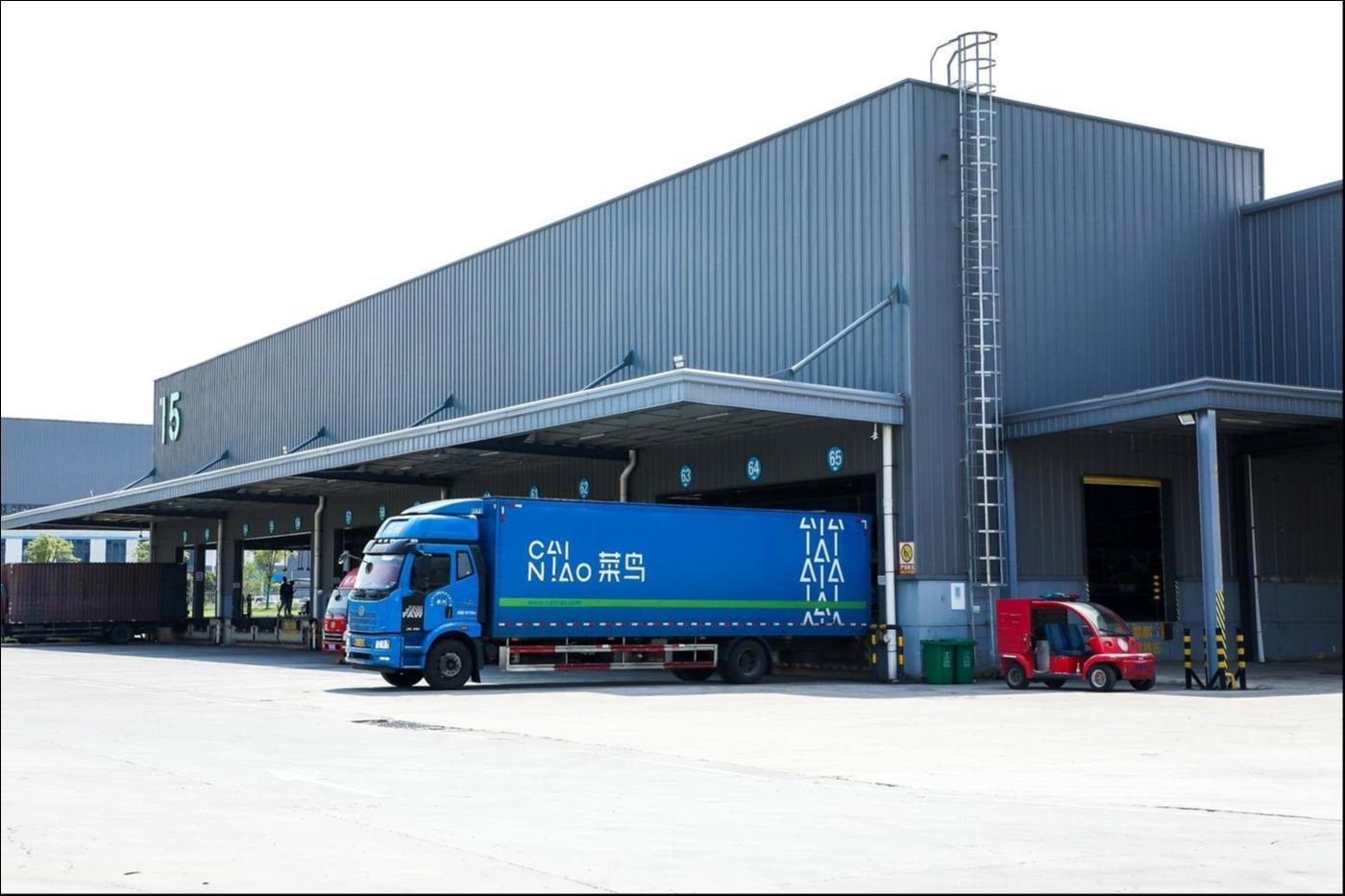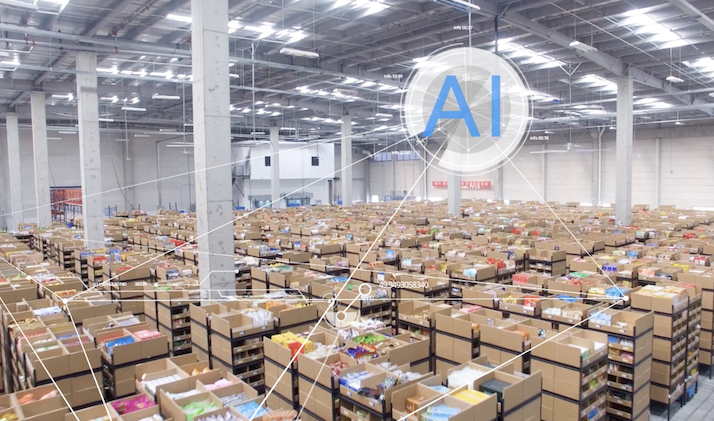Cainiao is a logistics arm of Alibaba Group, which is one of the largest e-commerce platforms in the world. Cainiao provides efficient and cost-effective delivery solutions for Alibaba’s own platforms and other e-commerce companies that use its network. Cainiao also operates in other markets, such as Southeast Asia, where it recently acquired a local logistics company.

How is Cainiao Going about with it’s expansion
Alibaba’s Cainiao is a logistics arm that aims to provide efficient and cost-effective delivery solutions for e-commerce platforms and consumers. It operates a network of warehouses, distribution centers, and delivery partners across China and overseas markets.
In January 2024, Cainiao launched a “consolidated shipping service in the U.S., which allows customers to order multiple products from different Chinese e-commerce platforms and receive them in one package delivered by air or sea. This service reduces the delivery time to as little as five days, compared to the usual 15 to 30 days for cross-border shipments.
The consolidated shipping service is expected to benefit both Chinese customers living in the U.S. and Chinese e-commerce companies that want to expand their market share in the U.S. market. For example, customers can order products from Taobao, Tmall, AliExpress, and other platforms under one roof and enjoy a seamless shopping experience. E-commerce companies can leverage Cainiao’s logistics network and expertise to offer faster and cheaper delivery options to their U.S. customers.
In addition to the consolidated shipping service, Cainiao also opened two new distribution centers in Dallas and Chicago in July 2023, taking its number of warehouses in the U.S. to five. These distribution centers are equipped with advanced technology and automation systems that enable Cainiao to process orders faster and more accurately.
Cainiao also launched a new express delivery service called Cainiao Express, which offers doorstep deliveries within half a day, same-day deliveries within one day, and next-day deliveries within two days for select Alibaba-owned businesses. This service aims to meet the diverse needs of consumers who want fast and convenient delivery options.
Furthermore, Cainiao reportedly made a $57 million bid to acquire Best Express Group Limited (BEST), a leading logistics company in Southeast Asia with operations in 10 countries. This acquisition would strengthen Cainiao’s presence and capabilities in the region’s growing e-commerce market.

Impact of Alibaba’s Expansion
Alibaba’s expansion in the U.S. market is a significant development that could affect its competition with Amazon in several ways. Here are some of the possible impacts:
Alibaba could increase its market share and customer base in the U.S., which is one of the largest and most lucrative e-commerce markets in the world. According to a report by eMarketer, the U.S. online retail sales are expected to reach $1.7 trillion by 2023, accounting for 24% of the global total. Alibaba could leverage its strong presence and reputation in China, as well as its diversified portfolio of products and services, to attract more U.S. consumers and sellers.
Alibaba could also enhance its logistics capabilities and efficiency in the U.S., which could give it an edge over Amazon in terms of delivery speed, cost, and quality. Alibaba has recently launched a “consolidated shipping” service in the U.S., which allows customers to order multiple products from different Chinese e-commerce platforms and receive them in one package delivered by air or sea. This service reduces the delivery time to as little as five days, compared to the usual 15 to 30 days for cross-border shipments. Alibaba also opened two new distribution centers in Dallas and Chicago in July 2023, taking its number of warehouses in the U.S. to five. These distribution centers are equipped with advanced technology and automation systems that enable Alibaba to process orders faster and more accurately.
However, Alibaba’s expansion in the U.S. market also poses some challenges and risks for its competition with Amazon. For instance, Alibaba faces regulatory uncertainties and scrutiny from various authorities in both China and the U.S., which could limit its growth potential or force it to make changes to its business practices. Moreover, Alibaba has a lower brand recognition and loyalty among U.S. consumers than Amazon, which has been operating in the country for over two decades⁵. Amazon also has a more established customer base and ecosystem than Alibaba, which includes services like Prime Video, Kindle, Alexa, AWS, etc. Therefore, Alibaba may need to invest more resources and efforts to build trust and credibility among U.S. consumers.

Potential Expansion Difficulties
Some of the difficulties that Cainiao will face in its expansion into the U.S. market are:
Cainiao faces potential Regulatory uncertainties and scrutiny
Cainiao operates under Alibaba Group, which is subject to various regulations and restrictions in both China and the U.S. These regulations could affect Cainiao’s business operations, such as data privacy, consumer protection, taxation, anti-monopoly, etc. For example, in 2020, the U.S. Department of Commerce imposed a $2.8 billion fine on Alibaba for allegedly abusing its dominant position in the Chinese e-commerce market. This could have implications for Cainiao’s expansion into the U.S., as it may face similar challenges or investigations from the U.S. authorities.
Cultural differences and customer preferences:
Cainiao has to adapt its logistics services and products to suit the needs and expectations of U.S. customers, who may have different preferences and behaviors than Chinese customers. For example, U.S. customers may value faster delivery times, more reliable tracking information, more flexible payment options, more personalized recommendations, etc. Cainiao has to invest in research and development, marketing, customer service, etc., to meet these demands and gain customer trust and loyalty.
Cainiao faces Competition from established players
Cainiao faces competition from other established players in the e-commerce and logistics industry in the U.S., such as Amazon, FedEx, UPS, USPS, etc. These players have more experience and resources than Cainiao in operating in the U.S. market and offering a wide range of products and services to consumers and sellers. They also have strong brand recognition and reputation among U.S. customers. Cainiao has to differentiate itself from these competitors by offering innovative solutions that can provide value-added services or competitive advantages.
These are some of the difficulties that Cainiao will face in its expansion into the U.S. market. However, these difficulties are not insurmountable for Cainiao, as it has a strong network of warehouses, distribution centers, delivery partners across China and overseas markets. It also has advanced technology and automation systems that enable it to optimize its operations and improve its customer service. Moreover, it has recently launched a “consolidated shipping” service in the U.S., which allows customers to order multiple products from different Chinese e-commerce platforms and receive them in one package delivered by air or sea. This service reduces the delivery time to as little as five days, compared to the usual 15 to 30 days for cross-border shipments. This service could help Cainiao attract more Chinese customers living in the U.S. who want a seamless shopping experience.

Possible Competition with Amazon Logistics?
Amazon is another giant in the e-commerce and logistics industry, which offers a wide range of products and services to consumers and sellers. Amazon also has its own logistics arm, called Amazon Logistics, which delivers packages for Amazon’s own platforms and third-party sellers. Amazon also operates its own fleet of trucks, planes, drones, and robots to transport goods across the world¹.
Both Cainiao and Amazon are competing in the global logistics market, which is expected to grow rapidly in the coming years. According to a report by Grand View Research, the global logistics market size was valued at $4.5 trillion in 2020 and is projected to reach $6.7 trillion by 2027³. Some of the factors that drive this growth are the increasing demand for online shopping, the rising adoption of e-commerce platforms, the emergence of new technologies such as artificial intelligence and blockchain, and the need for faster and cheaper delivery options³.
Some of the similarities between Cainiao and Amazon are:
- They both have large-scale networks of warehouses, distribution centers, delivery partners, and transportation modes across different regions.
- They both use advanced technology and automation systems to optimize their operations and improve their customer service.
- They both offer various products and services related to logistics, such as consolidated shipping, express delivery, supply chain management, freight forwarding, customs clearance, etc.
Some of the differences between Cainiao and Amazon are:
- Cainiao focuses mainly on serving Alibaba’s own platforms and other e-commerce companies that use its network. Amazon serves a wider range of customers through its own platforms as well as third-party sellers.
- Cainiao operates mainly in China and overseas markets where Alibaba has a strong presence. Amazon operates mainly in North America but also has a significant presence in Europe, Asia-Pacific, Latin America, etc.
- Cainiao relies more on traditional modes of transportation such as trucks and planes. Amazon uses more innovative modes of transportation such as drones and robots.
Key Takeaways
- Alibaba’s logistics arm Cainiao launched a “consolidated shipping” service in the U.S. on January 9, 2024.
- The service packages multiple shopping orders from various Chinese e-commerce platforms and delivers them to U.S. customers via air and sea transport routes, reducing delivery times to as little as five days.
- The service is expected to gain traction among Chinese customers residing in the U.S. and Chinese e-commerce companies.
- Cainiao also opened two new distribution centers in Dallas and Chicago in July 2023, taking their number in the U.S. to five.
- Cainiao aims to compete with industry players like Amazon and Expedia in the global logistics market, which is projected to reach $16.79 trillion by 2032.

